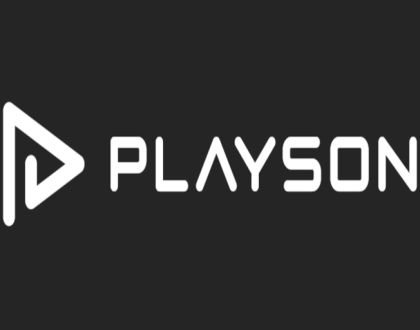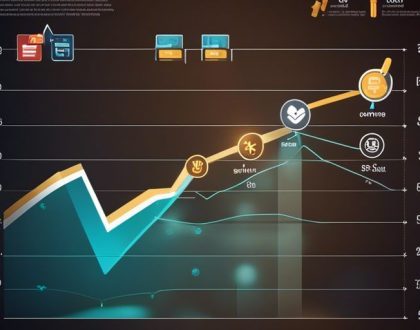Cybersecurity in iGaming – Protecting Players

In the world of iGaming, where online casinos and betting sites flourish, cybersecurity plays a critical role in safeguarding players’ sensitive information and ensuring fair gameplay. As the industry continues to expand rapidly, so do the cyber threats that target unsuspecting gamers. It is imperative for iGaming operators to implement robust security measures to protect players from data breaches, fraud, and other malicious activities.
Understanding iGaming Cyber Threats
A successful iGaming operation relies heavily on secure online transactions and the protection of player data. However, the industry faces a range of cyber threats that can compromise the integrity of gaming platforms and put players at risk. It is crucial for iGaming operators to be aware of these threats and implement robust cybersecurity measures to safeguard their platforms and players.
Types of Cyber Threats Faced by iGaming Industry
A Distributed Denial of Service (DDoS) attack is a common threat in the iGaming industry, where cybercriminals flood a gaming platform with an overwhelming amount of traffic, causing it to crash or become inaccessible to players. Phishing attacks are another prevalent threat, where hackers send fraudulent emails or messages to players, tricking them into revealing sensitive information such as login credentials or financial details.
| DDoS Attacks | Phishing Attacks |
| Risk of platform downtime | Player accounts compromised |
| Loss of revenue | Financial losses for players |
| Impact on player trust | Damage to brand reputation |
| Require robust mitigation strategies | Training players to identify phishing attempts |
| Constant monitoring and response | Implementing multi-factor authentication |
After understanding the various cyber threats faced by the iGaming industry, operators can take proactive steps to strengthen their security infrastructure and protect their players from potential risks.
Impact of Cyber Threats on Players and Operators
The impact of cyber threats on both players and operators in the iGaming industry can be severe. For players, falling victim to a cyber attack can result in financial losses, identity theft, and compromised personal information. On the other hand, operators may suffer from reputation damage, legal consequences, and financial penalties if their platforms are breached.
Understanding the potential consequences of cyber threats is crucial for both players and operators to prioritize cybersecurity measures and ensure a safe and secure gaming environment. Implementing advanced encryption protocols, regular security audits, and employee training programs can help mitigate the risks and protect against cyber attacks.
Regulatory Framework for iGaming Cybersecurity
Even in the rapidly evolving world of online gambling, cybersecurity remains a paramount concern for iGaming operators globally. To combat cyber threats and protect players, regulatory bodies have established stringent frameworks to ensure the integrity and security of online gaming platforms.
International Cybersecurity Standards for iGaming
On an international level, various organizations such as the International Organization for Standardization (ISO) and the National Institute of Standards and Technology (NIST) have developed cybersecurity standards that apply to the iGaming industry. These standards provide guidelines and best practices for implementing robust cybersecurity measures to safeguard player data and sensitive information from cyber attacks. Adherence to these standards not only enhances the security posture of iGaming operators but also builds trust with players who seek a safe and secure online gaming environment.
Compliance and Legal Implications for iGaming Businesses
Framework compliance and legal implications are crucial aspects that iGaming businesses must consider to operate lawfully and ethically. Regulatory bodies like the Malta Gaming Authority and the UK Gambling Commission enforce strict cybersecurity requirements on iGaming operators to protect players and maintain the integrity of the industry. Non-compliance with these regulations can result in hefty fines, license revocation, and irreparable damage to a brand’s reputation.
Despite the challenges posed by regulatory requirements, iGaming businesses can turn compliance into a competitive advantage by demonstrating a commitment to cybersecurity. Implementing robustsecurity measures not only safeguards player data but also enhances the overall trust and credibility of the iGaming brand in the eyes of the consumers, leading to long-term success in the industry.
Player Data Protection
Many online gaming platforms collect and store vast amounts of sensitive player data, including personal information and payment details. Ensuring the protection of this data is crucial to maintaining player trust and complying with regulatory requirements.
Data Encryption and Protection Techniques
The use of strong data encryption techniques is imperative in safeguarding player information from unauthorized access. Encryption algorithms like Advanced Encryption Standard (AES) are widely used to encode data, making it unreadable to anyone without the proper decryption key. In addition to encryption, platforms employ various protection techniques such as firewalls, multi-factor authentication, and regular security audits to fortify their defenses against cyber threats.
Ensuring Anonymity and Safe Payment Transactions
The implementation of stringent identity verification processes during account creation and payment transactions is crucial in ensuring player anonymity and safeguarding against fraudulent activities. Platforms often utilize secure payment gateways and protocols like Secure Sockets Layer (SSL) to encrypt payment information during transactions, preventing interception by malicious actors. Moreover, the adoption of virtual currencies like cryptocurrencies provides an extra layer of anonymity for players who wish to protect their financial details.
Techniques such as tokenization, which replaces sensitive data with unique identification symbols, further enhance the security of payment transactions by reducing the risk of data theft. By employing a combination of encryption, secure protocols, and verification processes, online gaming platforms can effectively protect player data and ensure a safe gaming environment.
iGaming Platform Security
Securing Online Gaming Platforms
On the iGaming platform, security is a paramount concern to ensure the protection of players’ sensitive information and financial transactions. Keeping the platform safe from cyber threats requires robust measures such as implementing encryption protocols, firewalls, and multi-factor authentication. Unauthorized access to player accounts and personal data can lead to significant financial losses and damage to the platform’s reputation in the industry.
Regular Audits and Security Assessments
With the fast-evolving nature of cyber threats, iGaming platforms need to conduct regular audits and security assessments to evaluate their systems’ vulnerabilities and identify areas for improvement. This proactive approach allows platforms to stay ahead of potential threats and ensure that their security measures are up to date. Regular testing of the platform’s security protocols helps in identifying weaknesses that could be exploited by malicious actors.
This continuous monitoring and assessment of the iGaming platform’s security posture are crucial in maintaining a secure environment for players. It not only protects sensitive data from being compromised but also instills confidence in the players that their information is safe and secure while engaging in online gaming activities.
Educating Players on Cyber Safety
Creating Awareness About Cyber Risks
For iGaming operators, it is crucial to educate players about the risks associated with cyber threats. Many players may not be fully aware of the potential dangers they face while engaging in online gaming. This lack of awareness can make them vulnerable to cyber attacks, including phishing scams, malware, and data breaches.
Best Practices for Players to Safeguard Their Information
Cybersecurity experts recommend a few best practices that players can follow to protect their information while participating in iGaming. These include using strong and unique passwords for gaming accounts, enabling two-factor authentication where possible, and being cautious about sharing personal information online.
Creating a strong password is one of the simplest yet most effective ways for players to enhance their cybersecurity. Additionally, enabling two-factor authentication adds an extra layer of security to gaming accounts, helping to prevent unauthorized access. By being mindful of the information they share online, players can significantly reduce their vulnerability to cyber threats.
The Future of iGaming Cybersecurity
Despite the advancements in cybersecurity measures within the iGaming industry, the landscape continues to evolve and present new challenges. As technology progresses, so do the methods utilized by cybercriminals. It is imperative for the industry to adapt and stay ahead of potential threats to protect both themselves and their players.
Emerging Technologies and Their Impact
iGaming companies are increasingly turning to cutting-edge technologies such as artificial intelligence, machine learning, and blockchain to bolster their cybersecurity measures. These technologies provide enhanced protection by quickly identifying abnormal patterns or behavior, detecting potential threats in real-time, and securing transactions through decentralized systems.
Anticipating and Countering New Threat Vectors
Impact of emerging technologies in iGaming cybersecurity remains crucial, as cyber threats continuously evolve. The industry must anticipate and counter new threat vectors, including ransomware attacks, data breaches, and DDoS attacks. Implementing proactive security measures, regular security audits, and employee training programs are imperative steps to mitigate these risks.
Threat: Ransomware attacks pose a significant threat to iGaming platforms, as cybercriminals target sensitive player information for extortion. iGaming companies must invest in robust backup systems, encryption tools, and incident response plans to prevent and mitigate the impacts of ransomware attacks.
To wrap up
From above discussions, it is evident that cybersecurity in iGaming is crucial in protecting players from potential threats and ensuring a safe and secure online gaming experience. Implementing robust security measures such as encryption, two-factor authentication, regular security audits, and training employees can significantly mitigate risks associated with cyberattacks.
As the online gaming industry continues to grow, the need for enhanced cybersecurity measures becomes even more pressing. By staying vigilant, proactive, and investing in cutting-edge technologies, iGaming operators can effectively safeguard players’ sensitive information and maintain their trust in the platform. Ultimately, prioritizing cybersecurity not only protects players but also upholds the integrity and reputation of the iGaming industry as a whole.
FAQs:
What are some common cyber threats faced by the iGaming industry?
The iGaming industry faces threats like DDoS attacks and phishing scams, jeopardizing player data and platform integrity.
How do cyber threats impact players and operators in iGaming?
Players may suffer financial losses and identity theft, while operators risk reputation damage and legal consequences.
What measures can iGaming operators take to enhance cybersecurity?
Implementing encryption, multi-factor authentication, and regular security audits can bolster defenses against cyber threats.
Are there international standards for cybersecurity in the iGaming sector?
Yes, organizations like ISO and NIST offer guidelines for robust cybersecurity measures to protect player data.
Why is player education crucial in iGaming cybersecurity?
Educating players about cyber risks helps them recognize threats like phishing scams and enhances overall online safety.
Recommended Posts

Playson Earns ISO/IEC 27001:2022 Certification
May 16, 2024

Europe’s iGaming Frontier – Top Picks
May 16, 2024

The Economic Impact of iGaming Licensing
May 16, 2024




